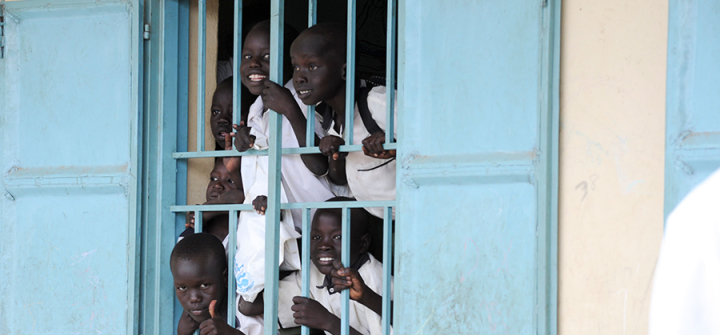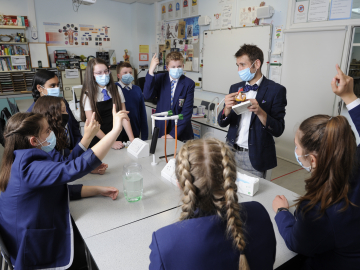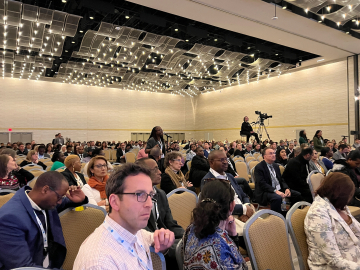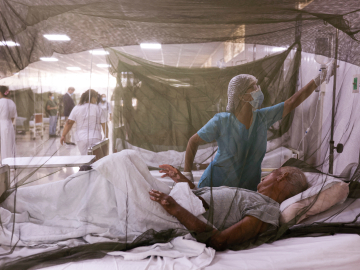Ending the HIV/AIDS Epidemic Between Bullets in South Sudan
Following an overwhelming majority vote for independence, South Sudan gained its independence from Sudan on July 9, 2011, after years of conflict. 5 years later, the country remains mired in decades-old tribal warfare. Prior to independence, the struggle between northern and southern Sudan was over religion, oil, land, minerals, and more. Post-independence, the conflict in southern Sudan became an internecine, tribal fight, Dinka versus Nuer, and remains a very complex, storied struggle with no resolution in sight.
From a disease control lens, the conflict also impacts efforts to fight HIV/AIDS in South Sudan. Emergencies generate high risk to HIV positive populations, fostering negative coping mechanisms, sexual and gender based violence, disruption of social networks, and inaccessible HIV prevention, care and treatment commodities. Further, thousands of people seeking relative safety are now displaced, or have migrated outside of the country into neighboring nations. This quickly leads to a delinking of care from diagnosis of positives to initiation on antiretroviral (ARV) medication, for example; or, it makes it harder for patients on ARVs to continue receiving vital treatment, thus increasing the likelihood of a patient’s HIV viral load to pass the threshold to prevent transmission.
As one of the world’s fragile states, South Sudan is a very difficult place to work. Yet, the US government has been supporting multiple programs in southern Sudan since 1984, when the USAID established a mission in Juba (this mission became the Embassy of South Sudan in 2011 after independence). Over the last 10 years in South Sudan, the US President’s Emergency Plan for AIDS Relief, or PEPFAR, has been funding HIV/AIDS testing, care and treatment related services. PEPFAR in South Sudan currently funds activities through 3 implementing agencies, namely, the CDC, the US Department of Defense (DoD), and USAID, with a total budget of about $25M/year.
Due to increased hostilities among warring tribes beginning in early July, the US Embassy Juba declared an “Ordered Departure,” which meant that most of the US government program staff had to immediately depart the country. Following suit, most other national missions based in Juba, and also implementing agencies conducting life-saving work, left the country. In fact, this was the second time for this to happen in South Sudan—the first in December 2013, following what was no less than genocide.
Fortunately, within 2-3 months following the acute conflict, most of the implementing agencies returned to South Sudan and resumed testing, care and treatment of HIV positive patients. In fact, of 40 sites supported by PEPFAR in South Sudan, 39 of them are still operational, and most of them remained operational even during the height of the hostilities. While not all targets (based on the UNAIDS 90-90-90 schema) are on track, many of them are being achieved. Specific targets on track or not far behind include the number of patients being tested, and the number of new patients being put on ARV medications.
PEPFAR South Sudan planning and resourcing for fiscal year 2017 includes conducting an HIV antenatal clinic (ANC) sentinel survey. These surveys are critical for understanding national prevalence of HIV among pregnant women, and thus also help provide insight into the generalized national prevalence of HIV. Also planned is an AIDS Indicator Survey (AIS), which is the gold-standard for measuring indicators to effectively monitor a national HIV/AIDS program. This will be the first AIS to be conducted in South Sudan, and will include testing for HIV infection, HIV viral load, recency of HIV infection, syphilis, and Hepatitis B. Due to the conflict, timelines have been pushed back for both of these surveys, but we are hopeful that this is a minor delay, that in the coming year we can complete the ANC survey, and that we can make significant headway towards the AIS.
Amidst this conflict, continuing to implement these activities is remarkable and a testament to the dedication of health and humanitarian workers who continue to save lives in South Sudan.
Rohit A Chitale, PhD, MPH is the Centers for Disease Control and Prevention (CDC) Country Director for South Sudan.
Join the thousands of subscribers who rely on Global Health NOW summaries and exclusive articles for the latest public health news. Sign up for our free weekday enewsletter, and please share the link with friends and colleagues: Subscribe to GHN
Children participating in UN Day activities in Juba, South Sudan, in 2012. UN Photo/Isaac Billy




